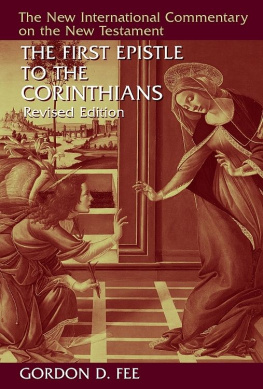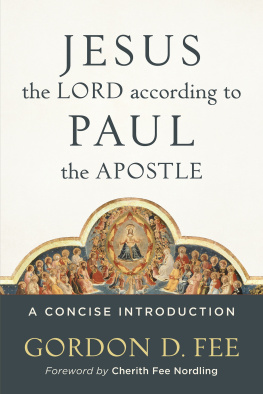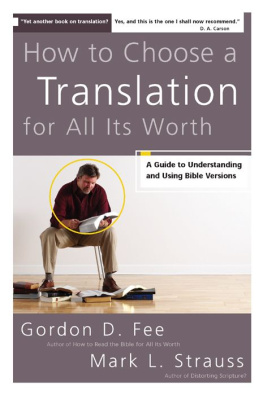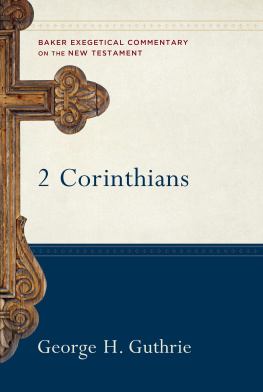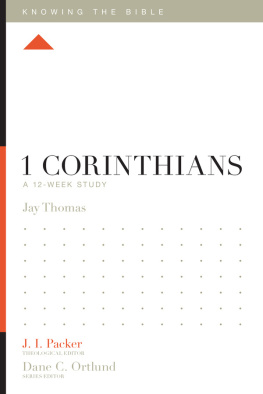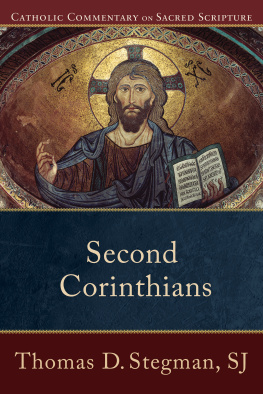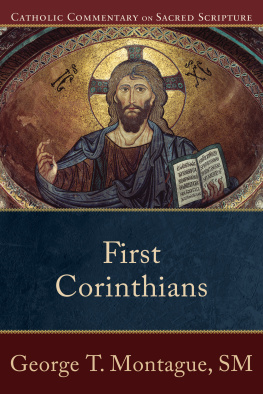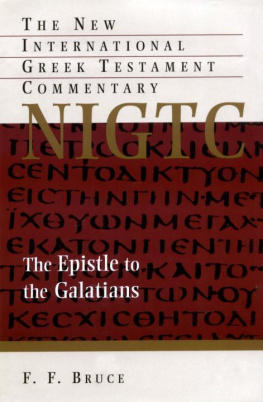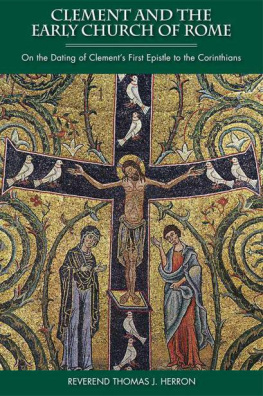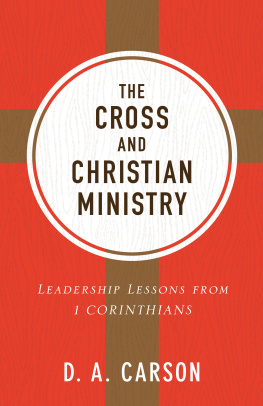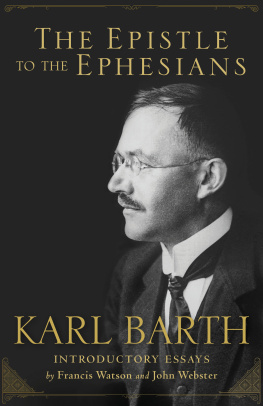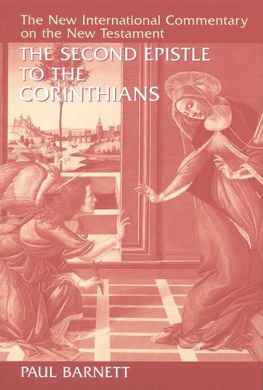Gordon D. Fee - The First Epistle to the Corinthians: Revised Edition
Here you can read online Gordon D. Fee - The First Epistle to the Corinthians: Revised Edition full text of the book (entire story) in english for free. Download pdf and epub, get meaning, cover and reviews about this ebook. year: 2014, publisher: Wm. B. Eerdmans Publishing Co., genre: Religion. Description of the work, (preface) as well as reviews are available. Best literature library LitArk.com created for fans of good reading and offers a wide selection of genres:
Romance novel
Science fiction
Adventure
Detective
Science
History
Home and family
Prose
Art
Politics
Computer
Non-fiction
Religion
Business
Children
Humor
Choose a favorite category and find really read worthwhile books. Enjoy immersion in the world of imagination, feel the emotions of the characters or learn something new for yourself, make an fascinating discovery.
- Book:The First Epistle to the Corinthians: Revised Edition
- Author:
- Publisher:Wm. B. Eerdmans Publishing Co.
- Genre:
- Year:2014
- Rating:5 / 5
- Favourites:Add to favourites
- Your mark:
- 100
- 1
- 2
- 3
- 4
- 5
The First Epistle to the Corinthians: Revised Edition: summary, description and annotation
We offer to read an annotation, description, summary or preface (depends on what the author of the book "The First Epistle to the Corinthians: Revised Edition" wrote himself). If you haven't found the necessary information about the book — write in the comments, we will try to find it.
The First Epistle to the Corinthians: Revised Edition — read online for free the complete book (whole text) full work
Below is the text of the book, divided by pages. System saving the place of the last page read, allows you to conveniently read the book "The First Epistle to the Corinthians: Revised Edition" online for free, without having to search again every time where you left off. Put a bookmark, and you can go to the page where you finished reading at any time.
Font size:
Interval:
Bookmark:
T HE N EW I NTERNATIONAL C OMMENTARY ON THE N EW T ESTAMENT
General Editors
N ED B . S TONEHOUSE (19461962)
F . F . B RUCE (19621990)
G ORDON D . F EE (19902012)
J OEL B . G REEN (2013 )
GORDON D. FEE
W ILLIAM B . E ERDMANS P UBLISHING C OMPANY
G RAND R APIDS, M ICHIGAN / C AMBRIDGE, U . K .
1987, 2014 Gordon D. Fee
All rights reserved
First edition 1987
Revised edition 2014
Published 2014 by
Wm. B. Eerdmans Publishing Co.
2140 Oak Industrial Drive N.E., Grand Rapids, Michigan 49505 /
P.O. Box 163, Cambridge CB3 9PU U.K.
Library of Congress Cataloging-in-Publication Data
Fee, Gordon D.
The First Epistle to the Corinthians / Gordon D. Fee.Revised Edition.
pages cm.(The New International Commentary on the New Testament)
Includes .
ISBN 978-0-8028-7136-7 (cloth: alk. paper); 9781-4674-4041-7 (ePUB); 9781-4674-3999-2 (Kindle)
1. Bible. Corinthians, 1stCommentaries. I. Title.
BS2675.53.F44 2014
227.2077dc23
2014002598
www.eerdmans.com
For
Wayne Kraiss
with appreciation
Indexes
In accordance with the policy of keeping the New International Commentary on the New Testament up to date, by revision or replacement, a new volume on 1 Corinthians is now presented.
The original NICNT volume on 1 Corinthians was one of the earliest in the series: it was published in 1953, and was the work of the veteran Dutch scholar Dr. F. W. Grosheide, who for over forty years had been Professor of New Testament at the Free University of Amsterdam. Since its appearance a full generation has elapsed. The study of 1 Corinthiansone of the most exciting of Pauls lettershas been energetically pursued. New problems have emerged and new questions have been asked, and on all of these todays reader expects to find some help.
Dr. Gordon Fee is fully abreast of these issues and is well qualified to give the required help. He is best known in the world of New Testament scholarship for his expertise in textual criticism, but his exegetical gifts have been continuously exercised during his years of teaching at Wheaton College, Gordon-Conwell Theological Seminary, and now Regent College, Vancouver, as well as in his commentary on the Pastoral Epistles.
He treats the successive sections of 1 Corinthians with an eye to the place of each in the overall development of the letter and its argument; he treats the letter itself in the context of the epistolary exchanges between Paul and the Corinthian church as well as in its historical, cultural, and social setting. Some elusive questions arise with regard to the Corinthian Christians unexpressed presuppositionspresuppositions of which Paul had to take account when he was dictating the letter and of which we must be made aware when reading it. This is a real letter (not a literary composition disguised as a letter): in it Paul interacts with living, articulate, and argumentative men and women. Readers who try to use it as a manual of church order, a directory of public worship, or a digest of canon law for today will miss its point; but under Dr. Fees guidance they will grasp, and perhaps even apply, its abiding message.
F . F . B RUCE
As Acts tells the story, the Lord choreographed an encounter between Philip and an Ethiopian eunuch on the road from Jerusalem to Gaza. This Ethiopian had a copy of at least some of the Scriptures and was reading from the prophet Isaiah. Hearing him read, Philip inquired, Are you really grasping the significance of what you are reading? The Ethiopian responded, How can I, unless someone guides me? The result is that Philip shared the good news about Jesus with him and the Ethiopian was baptized as a new Christ-follower (Acts 8:2640).
It is difficult to imagine a more pressing mandate for the work of a commentary than this: to come alongside readers of Scripture in order to lead them so that they can grasp the significance of what they readand to do so in ways that are not only informative but transformative. This has been and remains the aim of the New International Commentary on the New Testament. The interpretive work on display in this volumeand, indeed, in this commentary seriescan find no better raison dtre and serve no better ambition.
What distinguishes such a commentary?
First and foremost, we are concerned with the text of Scripture. This does not mean that we are not concerned with the history of scholarship and scholarly debate. It means, rather, that we strive to provide a commentary on the text and not on the scholarly debate. It means that the centerpiece of our work is a readable guide for readers of these texts, with references to critical issues and literature, and interaction with them, all found in our plentiful footnotes. Nor does it mean that we eschew certain critical methods or require that each contributor follow a certain approach. Rather, we take up whatever methods and pursue whatever approaches assist our work of making plain the significance of these texts.
Second, we self-consciously locate ourselves as Christ-followers who read Scripture in the service of the church and its mission in the world. Reading in the service of the church does not guarantee a particular kind of interpretation, say, one that is supportive of the church in all times and places or that merely parrots what the church wants to say. The history of interpretation demonstrates that, at times, the Scriptures speak a needed prophetic word of challenge, calling the church back to its vocation as the church. And at other times, the Scriptures speak a word of encouragement, reminding the church of its identity as a people who follow a crucified Messiah and serve a God who will vindicate Gods ways and Gods people.
We also recognize that, although the Scriptures are best read and understood through prayerful study and in the context of the churchs worship, our reading of them cannot be separated from the world that the church engages in mission. C. S. Lewis rightly noted that what we see is determined in part by where we are standing, and the world in which we stand presses us with questions that cannot help but inform our interpretive work.
It is not enough to talk about what God once said, for we need to hear again and again what the Spirit, through the Scriptures, is now saying to the church. Accordingly, we inquire into the theological significance of what we read, and into how this message might take root in the lives of Gods people.
Finally, the New International Commentary on the New Testament is written above all for pastors, teachers, and students. This means that our work is located in that place between the more critical commentaries, with their lines of untranslated Greek and Aramaic and Latin, and those homiletical commentaries that seek already to work out how a text might speak to congregations. Our hope is that those preparing to teach and preach Gods word will find in these pages the guide they need, and that those learning the work of exegesis will find here an exemplar worth emulating.
J OEL G REEN
The story of the events that led me to write this commentary is long and needs not be recounted in full here. It began with my teaching a course in 1 Corinthians at Wheaton College in 1970, something I have done almost every year since, first at Wheaton and then at Gordon-Conwell Theological Seminary. Close work with the text and the literature over the years made me think that there might be a place for yet another commentaryof a slightly different kind and from a slightly different point of view from others. As I wrote the
Font size:
Interval:
Bookmark:
Similar books «The First Epistle to the Corinthians: Revised Edition»
Look at similar books to The First Epistle to the Corinthians: Revised Edition. We have selected literature similar in name and meaning in the hope of providing readers with more options to find new, interesting, not yet read works.
Discussion, reviews of the book The First Epistle to the Corinthians: Revised Edition and just readers' own opinions. Leave your comments, write what you think about the work, its meaning or the main characters. Specify what exactly you liked and what you didn't like, and why you think so.

